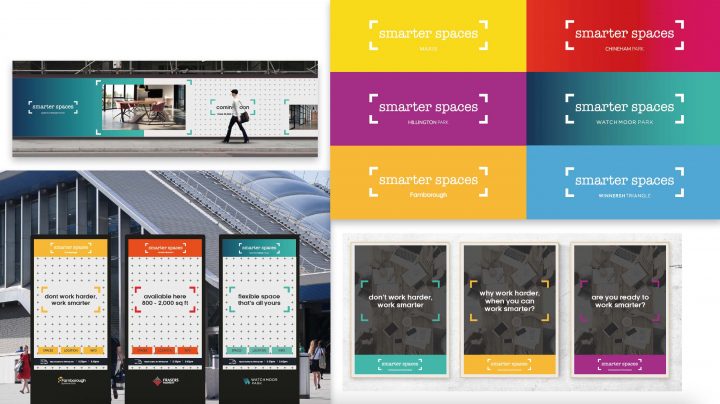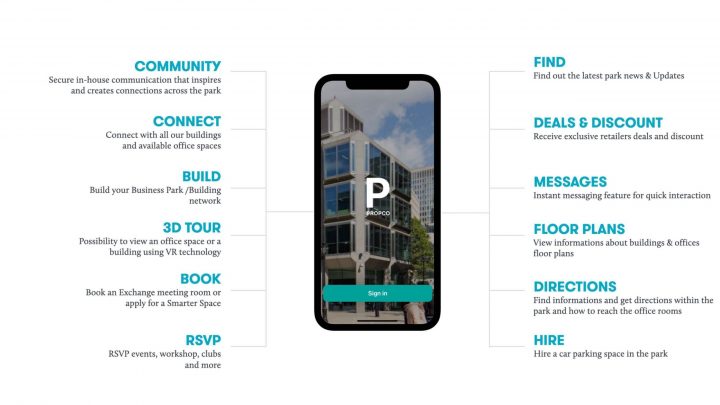The idea of the workplace is changing. COVID-19 has created plenty of unknowns for the entire workspace ecosystem – putting pressure on landlords, workspace operators, employers, and employees, as the trends that were expected to evolve over years have transformed the industry almost overnight. With around 30% of corporates predicted to continue working from home and most expected to only return to the office for 2 or 3 days each week, businesses are starting to quickly review their space requirements to maximise the use of their real estate – with a focus on flexibility.
What changes are we seeing in the industry, and how can the design and overall model of the workplace be improved to suit our rising demands and ever-changing needs?
1. Downsizing
We expect to see many businesses reduce their capacity and save on real estate costs, meaning ‘hoteling’ (defined as either hot-desking, desk booking or shared desks) may become the new preferred option. This way of working is already being successfully implemented within Deloitte’s Amsterdam base, offering only 1,000 desks amongst 2,500 workers. Ron Bakker, Partner of PLP Architecture described the concept: “a quarter of this building is not allocated desk space, it’s a place to meet. We’re starting to notice that office space is not so much about the workspace itself; it’s really about making a working community, and for people to have a place that they want to come to”. Although this sort of flexibility requires pre-planning, it will force management to become more team-based and less top-down. In addition, as leasing patterns continue to shift, there will be a surge in competition to attract and secure tenants – forcing tenants to place more importance on better-designed spaces.
2. A rise in “Flexible Working” spaces
Despite the rise in remote working, it’s clear the office is still here to stay. After all, what would happen to company culture without in-person collaboration and everyday interaction? Office spaces are no longer just a designated workspace, but a space to connect; essential after such a sustained year of isolation.
To entice people to take on their costly commutes again, there are a number of design considerations to transform the old notion of an office into a hub of collaboration, creativity and culture. Generous circulation, designated space for events, ‘zoom rooms’, natural light and well-equipped communal space will all be on the top of our priority list. On top of this, we’re likely to see offices incorporate extra hygiene considerations, with Savills predicting contactless design in buildings (across applications, lifts and doors) to increase to 87% across the globe. Employers are going to be incredibly concerned about providing the best space they can for their employees.
Instead of fully implementing a work-from-home environment, many companies are utilising a hybrid approach where employees will only come into the office for a couple of days in the week and spend the remaining days working remotely. This has sparked the rise in numerous flexible office providers, all focusing heavily on the experience they’re providing.
Some key players include:
Smarter Spaces by Frasers Property UK
A concept that was created and designed by the team here at Underscore. Smarter Spaces was developed for use across all of the current FPUK business park portfolio, allowing each park to be more agile in the way they operate and in the offering they give their tenants.
The key benefit of the Smarter spaces concept is that it understands that every company is different, not just in what they do but how big they are and how much space they need to operate successfully. With that in mind, Smarter Spaces offers occupiers workspaces for 5 people up to 100 plus your own front door no matter what.

MYO by Landsec
Myo bridges the gap between serviced offices and traditional leases – perfect for businesses who are scaling up, looking for their new HQ or need a tailored project, incubator space or satellite office. All backed up by the flexibility, professional service and reliability normally reserved for big businesses.
Storey By British Land
Storey is a deliberately differentiated concept. Providing occupiers with high quality workspaces they can brand themselves, on a shorter term basis. The core principle of the brand is to provide flexible and personalised workspace for ambitious and growing businesses as well as larger organisations seeking additional space on flexible terms. The team at British Land launched their new, flagship flexible workspace at 100 Liverpool Street at the beginning of this year.
Qubes by HB Reavis
Qubes provides fully-serviced office space from London to Bratislava on short term leases that are flexible to the changing needs of their customers. Companies are able to adjust the size based on the number of people in their team, and are even given the option to completely customise their office space to their own branding, or add personalised features to enhance their unique company culture.
Staying Flexible by The Office Group
The flexible work offering for TOG is based on the concept that no two businesses are the same and neither are their buildings. There are over 50 different buildings, each offering office space, co-working area and high-end meeting rooms for any occasion or business size.
3. New technology is accelerating the shift
“Tenant Experience Technology” is now changing the game even faster. These platforms merge the physical and digital tenant experience to create a more engaging property for tenants, local retailers and visitors. Our Unlimited Community App uses the most up-to-date software to create an even more seamless user experience. After all, one of the biggest goals for landlords is to retain their tenants – and what better way than to connect them to a fully branded, centralised hub that improves your brand, on-site amenities & relationships? With efficient resource booking, wayfinding, space management and a seamless connection with local on-site retailers; this capital investment will elevate your tenant experience to new levels. Not to mention, the breadth of data driven insights that can be gained through a community app, allowing landlords to uncover insights that allow smarter capital and expense decisions.

Parting thoughts
For the first time in living memory, we are witnessing a fundamental shift in the way people do business and the companies at the forefront of adapting to this new way of office life will be the true winners in our eyes.
What we also see becoming a key factor over the coming months and years is being able to offer a workplace that is centred around people and human interaction – this social aspect of work, which is so vital to running creative and healthy companies. As the Head of Flexible Office Solutions says, “The future of work will be flexible – there’s no one-size-fits-all model for businesses or employees. Autonomy and variety will drive business performance.” If companies are able to pair better designed spaces with consistent, company-wide applications, then there is a great potential for creating a location agnostic experience; hopefully confirming that the hybrid office setting is here to stay.
